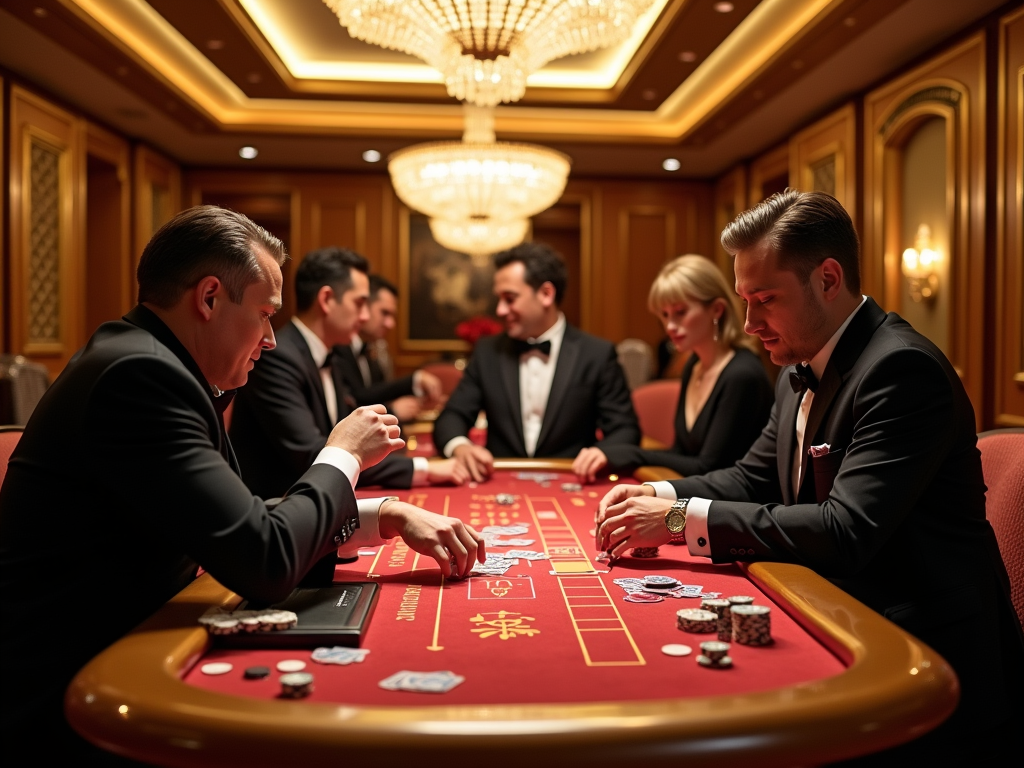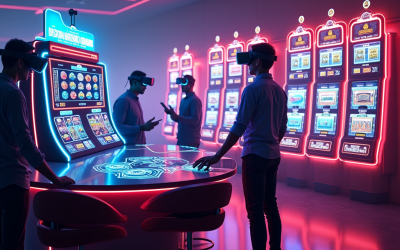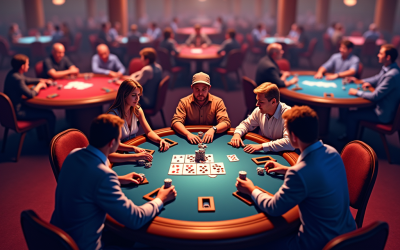The Psychology of High-Stakes Baccarat
The psychology of high-stakes baccarat reveals fascinating insights into player behavior and motivation. Substantial wagers trigger intense dopamine responses, while the refined setting of VIP rooms adds social prestige to the gaming experience.
Key Takeaways
- Baccarat’s low house edge (1.06% on Banker bets) makes it particularly attractive for high-stakes players compared to other casino games.
- High rollers exhibit distinct psychological traits, including higher risk tolerance and enhanced emotional control during significant wins and losses.
- Pattern recognition systems and tracking methods create an illusion of control, despite baccarat being purely chance-based.
- The VIP experience and exclusive treatment serve as powerful status symbols that reinforce high-stakes betting behavior.
- Emotional responses during losses can lead to problematic betting behaviors, especially when the sunk cost fallacy takes hold.
Dopamine and the Thrill of High-Stakes Play
The brain’s reward circuits light up intensely during high-stakes baccarat play, releasing powerful surges of dopamine that reinforce betting behaviors. Private gaming rooms create an atmosphere of luxury and exclusivity that appeals to players seeking both entertainment and social recognition.
Emotional Control and Risk Tolerance
High rollers typically demonstrate exceptional composure, maintaining steady decision-making even as bet sizes increase. This emotional control sets them apart from recreational players, though it can sometimes mask developing problematic behaviors.
Simplicity and Efficiency in Gaming
The simple rules of baccarat make it especially appealing—players need only choose between Banker and Player bets, with no complex strategies required. This straightforward gameplay, paired with favorable odds, draws sophisticated players who value efficiency in their gaming choices.
Status and Social Recognition
These psychological elements combine to create a compelling gaming experience that satisfies both the desire for excitement and the need for status recognition in high-stakes players.
The High Stakes Rush: Why Baccarat Dominates VIP Gaming
The Numbers Behind Baccarat’s Appeal
Baccarat’s remarkable dominance in VIP gaming circles stems from its impressive statistical advantage for players. The game’s popularity in Macau tells a compelling story – it generates between 50–60% of the region’s total gaming revenue. This isn’t surprising when you look at the numbers.
The math makes baccarat exceptionally attractive to high rollers. With a house edge of just 1.06% on Banker bets and 1.24% on Player bets, it offers some of the best odds in the casino. These figures stand in stark contrast to other popular casino games. Slot machines can eat away at your bankroll with a hefty 3–10% house edge, while roulette‘s house advantage ranges from 2.7% to 5.26%.
Status, Culture, and Simplicity
Despite its sophisticated reputation, baccarat’s rules couldn’t be simpler. Players face just three possible betting options: Banker, Player, or Tie. This straightforward approach particularly appeals to high-net-worth individuals who prefer clear-cut decisions over complex gaming strategies.
The game’s cultural significance runs deep, especially in Asian markets where it’s become the go-to choice for serious players. Here’s what makes baccarat particularly appealing to VIP players:
- Quick game rounds allow for rapid high-stakes action
- Private VIP rooms create an exclusive atmosphere
- Minimal decision-making lets players focus on betting strategy
- The game’s history with James Bond adds an air of luxury
- Cultural traditions and superstitions can be freely expressed
The combination of favorable odds and cultural cache creates a perfect storm for high-stakes gaming. The fast pace keeps players engaged, while the simple ruleset ensures they can focus on what matters most – making bold betting decisions and chasing that next big win.
Inside the Brain of a Big Bettor
The brain’s reward system plays a crucial role in high-stakes baccarat betting. Each time a high roller places a substantial wager, their brain releases dopamine – the same chemical responsible for feelings of pleasure and reward. This creates an intense rush that can be far more powerful than what’s experienced during smaller bets.
The Science of High-Stakes Thrills
High rollers aren’t just players with deep pockets – they’re often individuals with distinct psychological traits that set them apart from regular bettors. Their brains are wired to handle and even crave higher levels of risk. A $50,000 bet triggers a dramatically different neurochemical response compared to a $50 wager, producing a more intense dopamine surge that can create a powerful reinforcing cycle.
The psychology behind big betting is backed by scientific measurements. Using tools like the Sensation Seeking Scale, researchers have found that high-stakes players typically score much higher in thrill-seeking traits than average gamblers. These characteristics help explain why some players aren’t satisfied with small bets – they need bigger action to achieve the same level of excitement.
Here’s what makes high rollers different from regular players:
- Higher tolerance for financial risk-taking
- Stronger resistance to stress during big betting moments
- Enhanced ability to maintain emotional control during significant wins and losses
- Greater psychological resilience when facing substantial losses
- Increased capacity for quick decision-making under pressure
Their substantial financial resources add another layer to their psychological makeup. Having significant wealth creates a mental buffer that allows them to process potential losses differently. A high roller might view losing $100,000 with the same emotional response that a casual player feels when losing $100. This financial cushion helps them maintain composure during intense gaming sessions and enables them to focus on strategy rather than stress about losses.
The brain’s reward pathways can become particularly sensitive to these high-stakes situations, creating a unique psychological state where the thrill of the bet becomes as important as the potential win. This combination of neurochemistry and financial comfort creates the perfect conditions for big betting behavior to flourish.
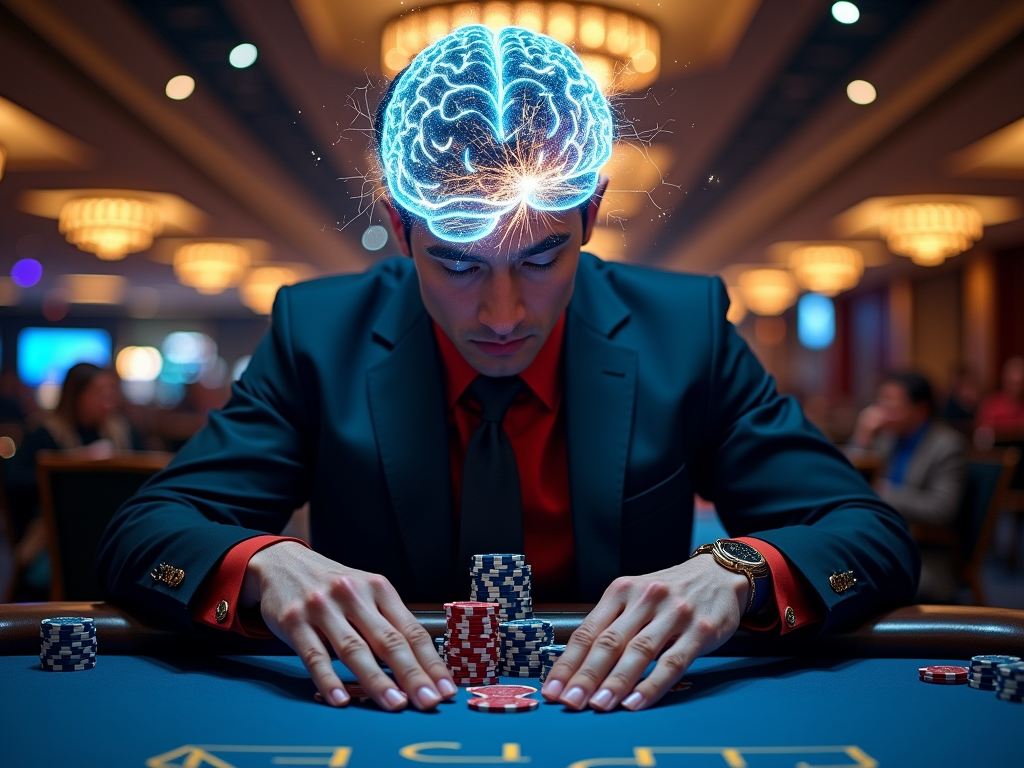
Why High Rollers Think They Can Beat Pure Chance
The Appeal of Pattern Recognition
I’ve noticed that high-stakes baccarat players put tremendous faith in tracking systems like the Big Road, Big Eye Boy, Small Road, and Cockroach Pig. These intricate scorecards give players a sense they’re decoding the game’s hidden patterns. Despite baccarat being purely chance-based, these tracking methods create an illusion of predictability that’s incredibly appealing to the human mind.
Common Psychological Traps
High rollers often fall into distinct psychological patterns that fuel their confidence. Here are the key mental traps that influence their betting behavior:
- The Gambler’s Fallacy makes players bet against streaks, believing a string of Banker wins must be followed by a Player win
- Hot Hand Fallacy drives increased bets during winning streaks, as players become convinced they’re “in the zone”
- Illusion of Control manifests through personal rituals, like specific card squeezing techniques or lucky charms
- Pattern tracking becomes a self-reinforcing cycle – wins are seen as validation of the system, while losses are dismissed as flukes
The psychology behind these behaviors is fascinating. High rollers develop elaborate personal theories about game patterns, backed by selective memory of times their predictions worked. They’ll remember the three times they correctly “read” a pattern while forgetting the dozen times they got it wrong.
Card squeezing rituals are particularly powerful in creating this false sense of control. I’ve seen players spend several intense minutes slowly revealing their cards, convinced their technique influences the outcome. This physical interaction with the cards creates a strong emotional investment in each hand.
These psychological factors combine to create an unshakeable confidence that can withstand significant losses. Even when faced with clear evidence that each hand is statistically independent, high rollers maintain their belief in pattern recognition and personal systems. It’s this conviction that enables them to place massive bets in what’s ultimately a game of pure chance.
Status, Power, and the VIP Experience
Private high-limit baccarat rooms create an exclusive sanctuary where wealth and status merge seamlessly. The plush surroundings, attentive staff, and specialized amenities craft an atmosphere that’s distinctly separate from the main casino floor.
The Ultimate VIP Treatment
High rollers receive exceptional perks that go far beyond standard casino offerings. Casinos spare no expense in catering to their elite players, providing:
- Private jet transportation to and from destinations
- Luxury penthouse suites with personal butler service
- Exclusive access to world-class chefs and restaurants
- Personal casino hosts available 24/7
- Private gaming tables with higher betting limits
These lavish comps aren’t just about comfort – they’re powerful status symbols that feed into the psychology of high-stakes betting. I’ve noticed how placing large bets becomes a form of conspicuous consumption, similar to purchasing luxury cars or designer clothing. The higher the bet, the more attention and respect a player commands.
The social dynamics in high-limit rooms are fascinating. Players often engage in subtle competition, with bet sizes serving as a measuring stick for status. A $100,000 bet isn’t just about winning money – it’s a statement of power and financial capability.
Casino staff play a crucial role in reinforcing this status hierarchy. Their carefully calibrated responses – from the way they address high rollers to their swift attention to every need – create an environment where players feel like royalty. This continuous cycle of deference and recognition helps maintain the allure of high-stakes play.
The visible display of wealth in these settings isn’t accidental. From the crystal glasses serving top-shelf spirits to the private gaming salons decorated with museum-quality art, every detail is orchestrated to reflect and amplify the player’s elevated social position. High rollers aren’t just playing baccarat – they’re participating in an exclusive club where money talks and status is currency.
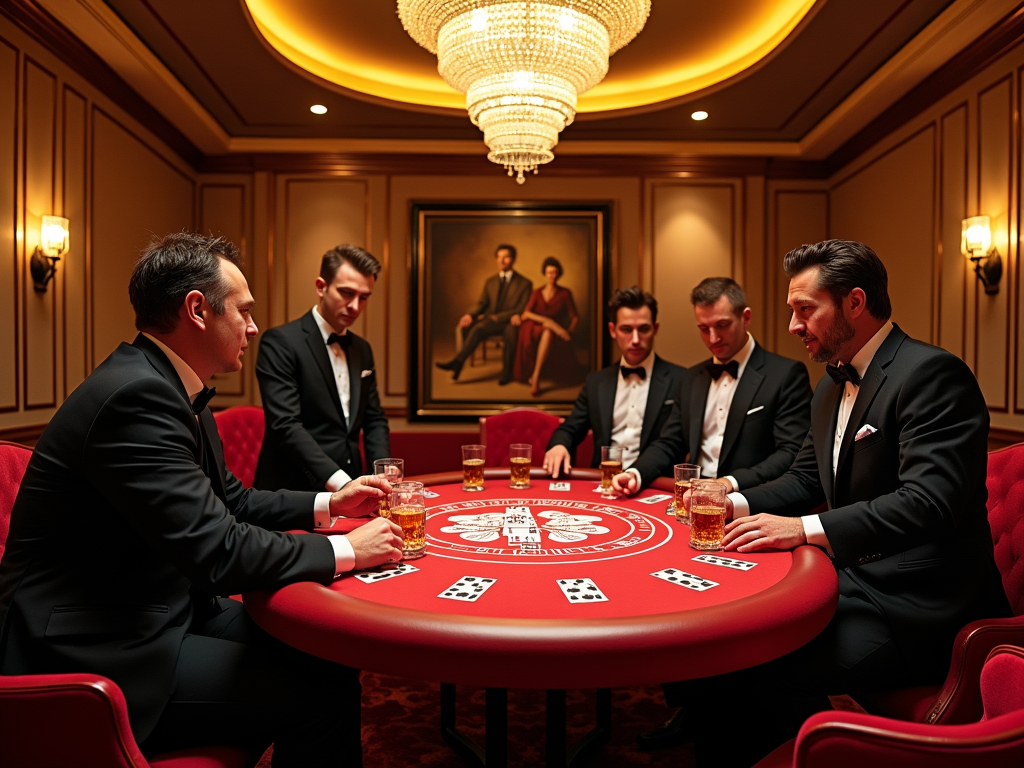
When Emotions Override Logic: The Psychology of Loss
Understanding the Sunk Cost Trap
High rollers face unique psychological challenges when dealing with substantial losses at the baccarat table. Their large bankrolls can become a double-edged sword, enabling them to push past typical stopping points that would signal caution to other players. The Sunk Cost Fallacy plays a significant role here – I’ve seen players justify increasingly larger bets by thinking about how much they’ve already lost, rather than evaluating each new bet on its own merits.
The psychological impact intensifies when losses mount. A player who’s down $1 million might convince themselves that doubling their next bet to $2 million is a sound strategy to recover losses. This thinking pattern creates a dangerous cycle where rational decision-making takes a backseat to emotional reactions.
The Impact of Tilt on Betting Decisions
Emotional regulation becomes crucial during losing streaks. Tilt – that state of emotional frustration – can trigger several problematic betting behaviors:
- Aggressive bet sizing beyond comfortable limits
- Abandoning pre-set betting strategies
- Making impulsive decisions without proper analysis
- Chasing losses with increasingly risky bets
- Ignoring bankroll management principles
These emotional responses can transform a manageable loss into a significant financial setback. The pressure of high-stakes gambling intensifies every emotion, making it harder to maintain clear judgment. What starts as mild frustration can quickly escalate into a full-blown psychological spiral, where each loss feels more personal than the last.
The mental toll of consecutive losses can be particularly severe for high rollers who aren’t used to extended losing streaks. Their self-image often connects deeply with their gambling success, making losses feel like personal failures rather than statistical probabilities. This mindset creates a perfect storm where emotional decision-making replaces strategic thinking, potentially leading to even greater losses.
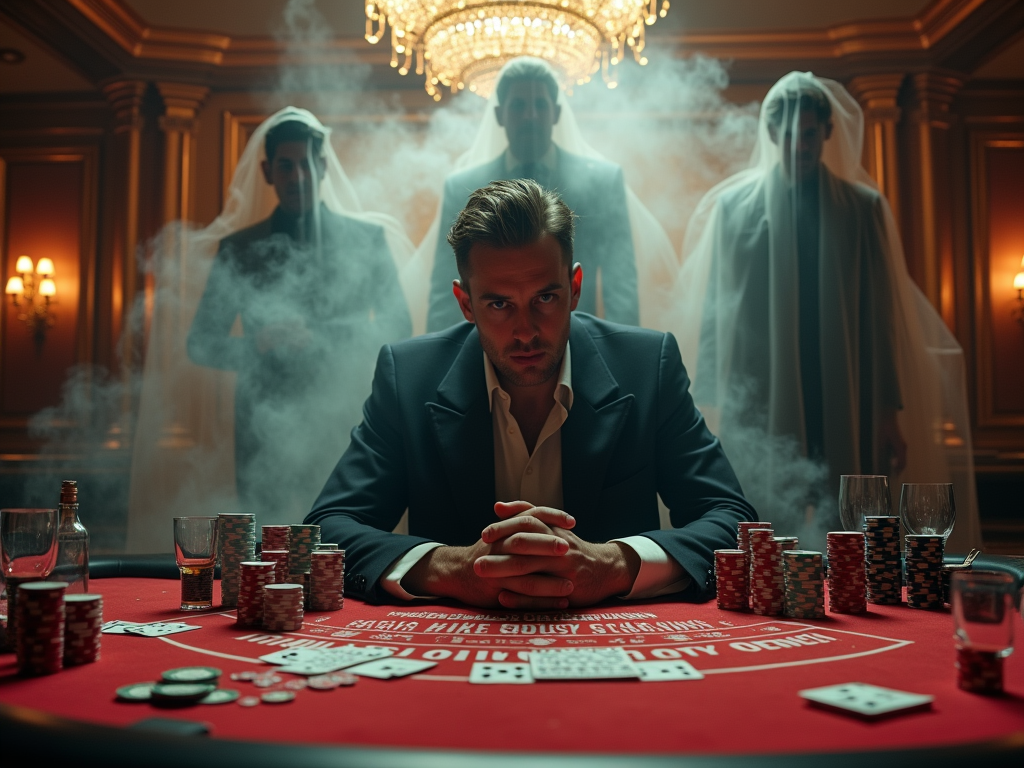
Sources:
UNLV Center for Gaming Research
Journal of Gambling Studies
Psychology of Addictive Behaviors
Nevada Gaming Control Board
Macau Gaming Inspection and Coordination Bureau (DICJ)
Schüll, Natasha Dow – Addiction by Design: Machine Gambling in Las Vegas

